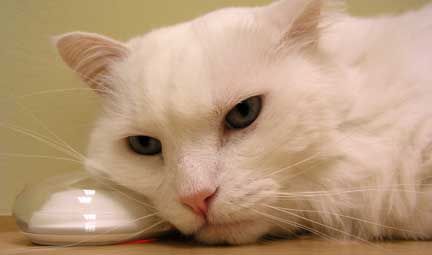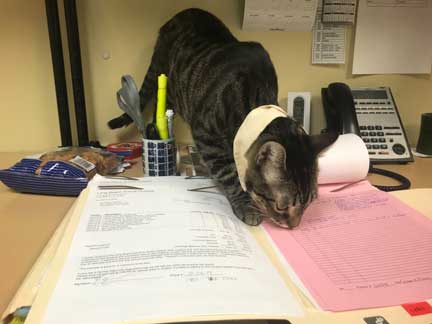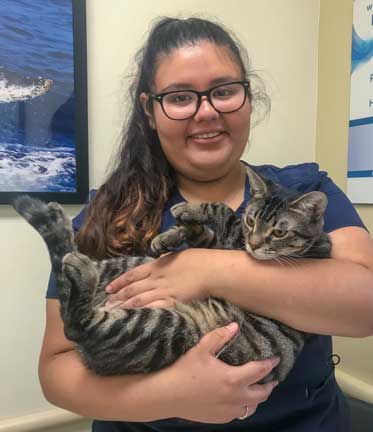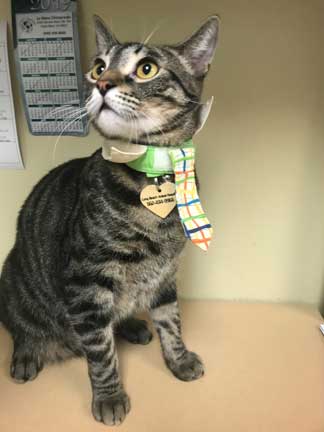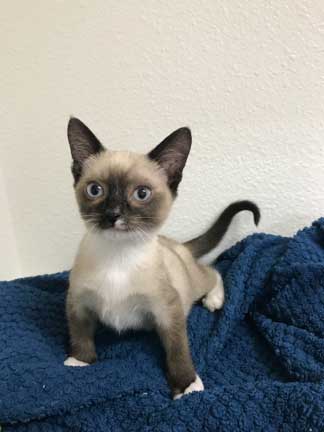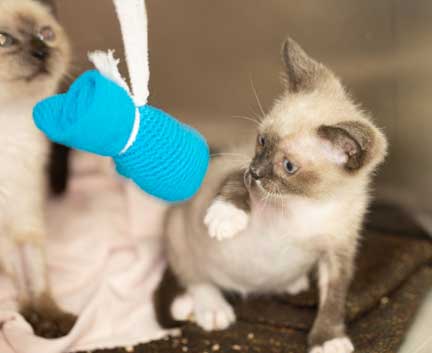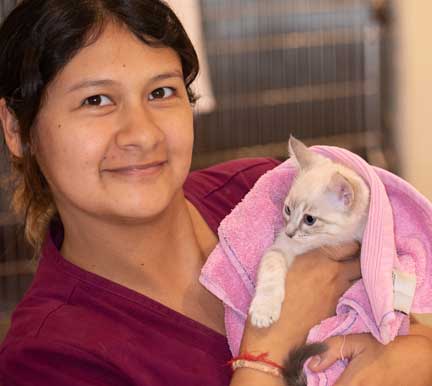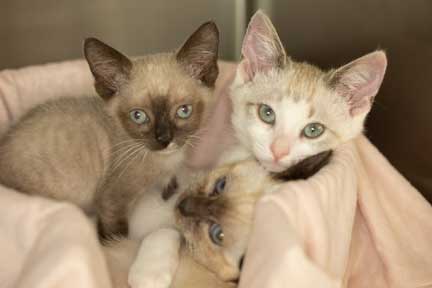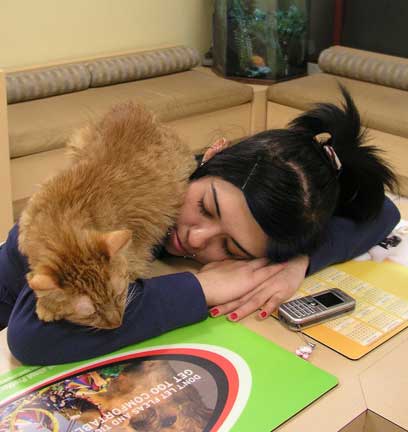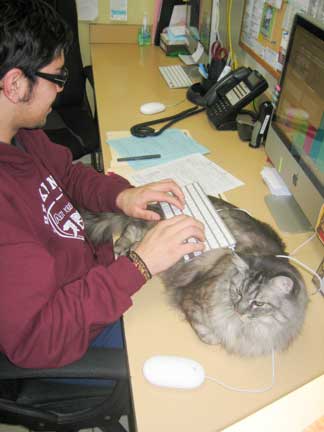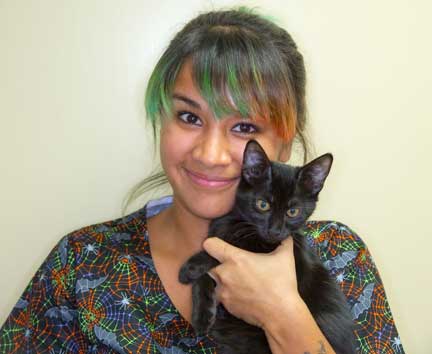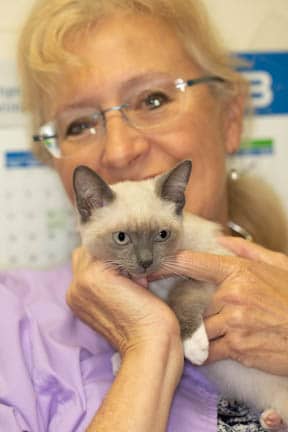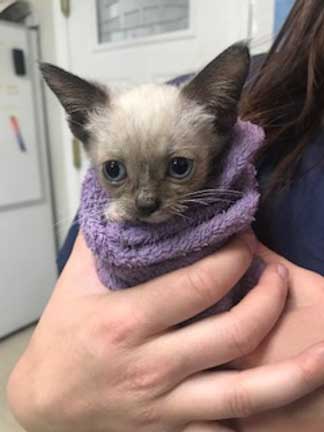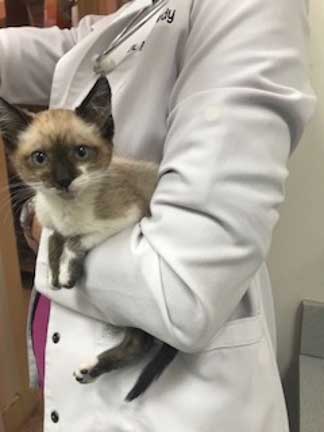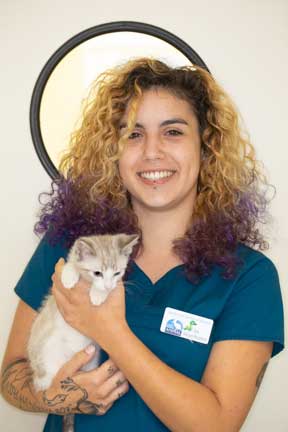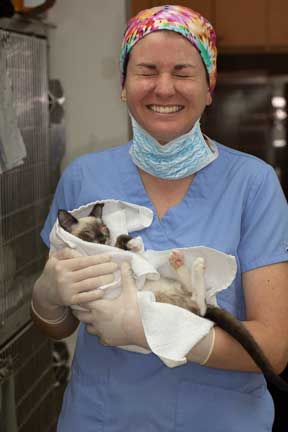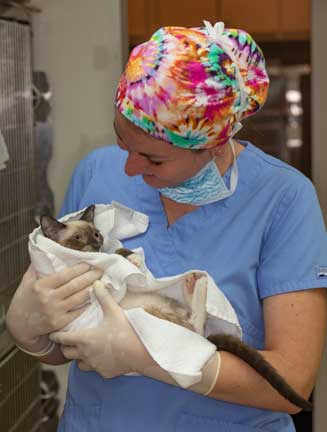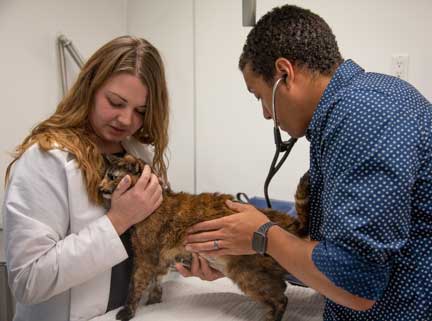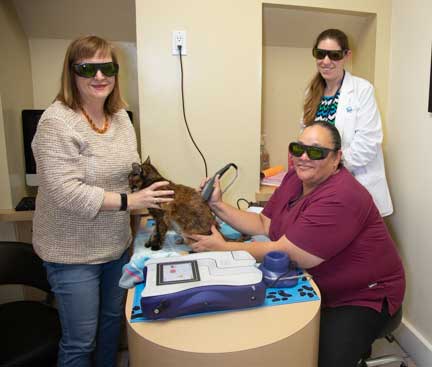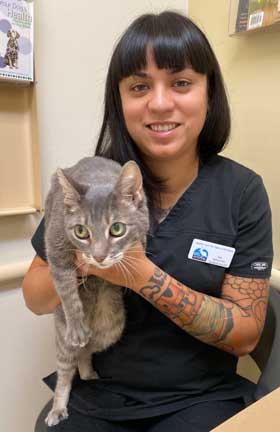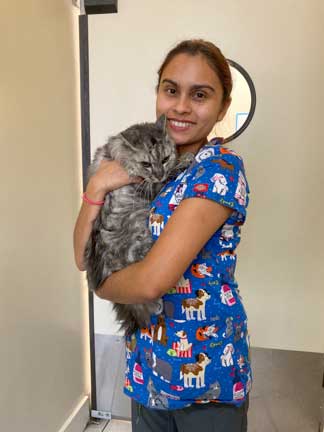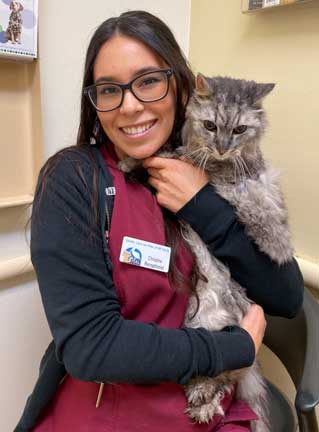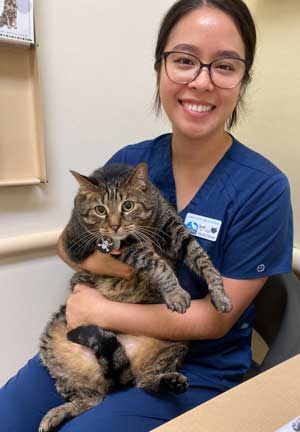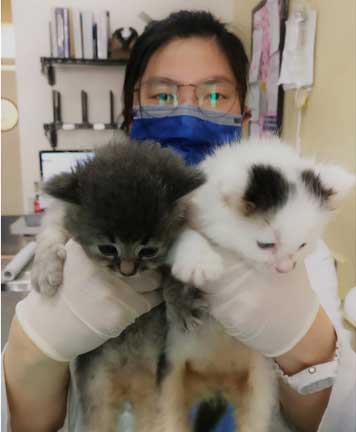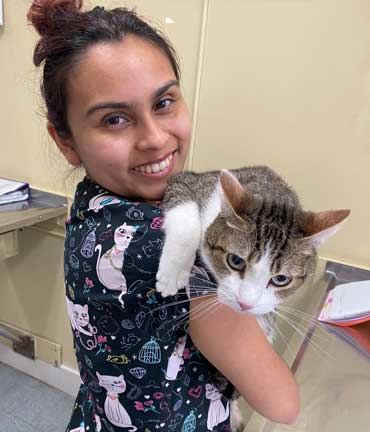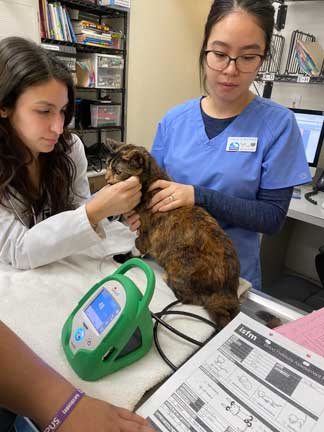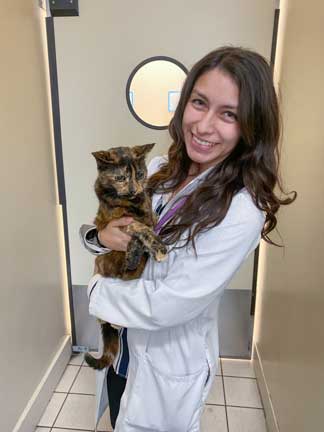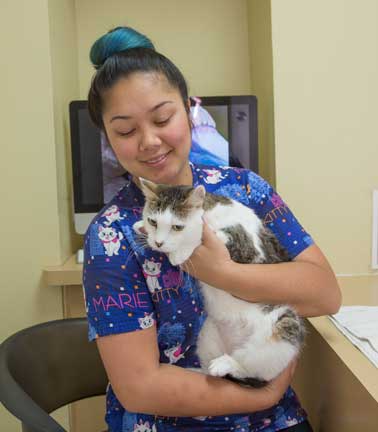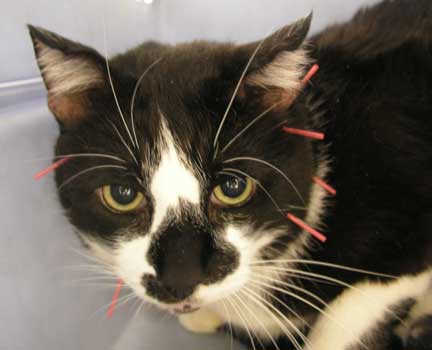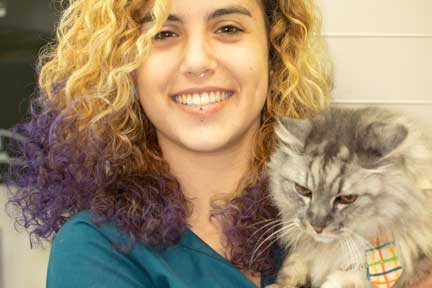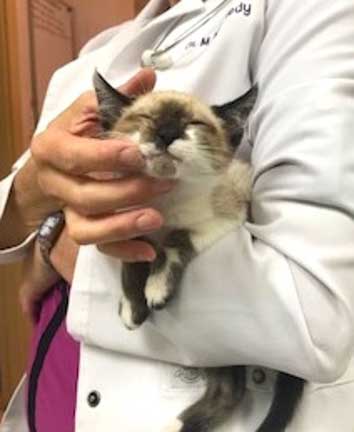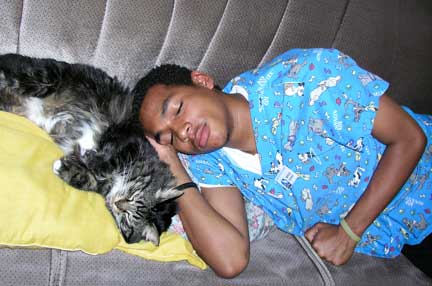Cats are interesting creatures when it comes to their social lives. They are highly prone to stress, especially in households with more than one cat. This stress can cause chronic disease, especially of the urinary tract. It is so important that have a page dedicated to this problem called Urinary Tract Disease in Cats. When this disease is caused by excess stress it is called Idiopathic Cystitis.
There is even speculation that excess stress causes a “Pandora Syndrome” in cats with aspects that are similar to humans. In cats the excess stress can exacerbate skin conditions like psychogenic alopecia (a rare disease), hormonal conditions, neurological conditions, behavioral conditions, and GI (Gastro-Intesttinal) conditions like IBD (Inflammatory Bowel Disease).
In addition to giving you some medical and behavioral suggestions to keep your cat healthy, this page is also a celebration of the many cats we have cared for since 1989. We will show some of them at the end of this page.
This is one of our lazy mascot’s ways of controlling any mice that might want to come into our hospital
Our hospital mascot named Groot decided to review and edit a medical record
Betsy removed him before he “marked” the record, if you know what we mean
He is a boy, so he immediately looked for some new trouble to get into
Here are some things you can do at home to help minimize stress in your kitten and adult cat
Kittens
If you have the luxury of training a young cat, the golden time period for good socializing is between four and ten weeks of age.
This troublemaker is at the right age to socialize
Get him acclimated to as many people as possible during this time.
This one is being held by a complete stranger
Introduce him to the fun of playing
Simple toys work best to minimize their fear of something new
He should be held and petted often so that he knows that this is normal. This is very similar to a mother cat’s attention and reinforces the human animal bond.
We are big kitten holders, whether we are doing something medical or not
Get him exposed (start slowly if needed) to other cats. Cats are adaptable but normally solitary animals, so socializing with other cats at a young age is important.
Looks like these three don’t need any help socializing
Adult Cats
- Provide fresh water, food, and litter for each cat separately. This is especially important for senior cats that are prevented from eating by younger cats. If you don’t have a constant water source then change the water in the bowl 3x per day- 1st thing in the morning, mid-day, and when you go to bed.
- Give your cat its own “cave” to hang out in by itself. It should be a quiet place away from high traffic areas.
- Stimulate them to earn several smaller meals per day to satisfy their hunting instincts.
- Keep food and water away from litter pans
- Keep litter pan fastidiously clean
- Give them platforms to jump on so they can enjoy the view from above which is natural for them
- Reward them for good behavior with petting and treats
- Let them have a spot by the window to watch the world go by
- Keep their environment enriched with new and stimulating toys
- Use Hill’s Prescription Diet c/d Multicare Stress food. Please see our highly informative page on Nutrition Advice.
- Frequently make changes to their indoor environment by moving a favorite pillow, providing a paper bag, even just putting the cat carrier in a new location
- Give them a scratching post- put it near the front door so they can scratch when they get excited when you come home. Also put one near windows and back doors. It needs to be tall and sturdy to be most effective. Entice them to use it with toys and catnip at the top. Use Feliscratch® by Feliway® that is an analog of the pheromone cats deposit when they scratch.
Our Staff With Cats
Over the decades we have taken care of a whole lot of cats and kittens. These pictures with our staff speak for themselves.


